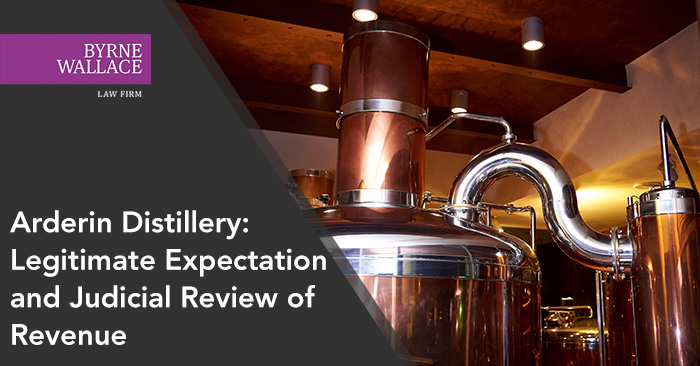Arderin Distillery: Legitimate Expectation and Judicial Review of Revenue
Wednesday, 14 December 2022
The recent decision of the High Court in Arderin Distillery Limited v The Revenue Commissioners [2022] IEHC 267 (“Arderin”) is the latest consideration by the Irish courts of a judicial review challenge against a decision by the Revenue Commissioners.
Most tax practitioners will look primarily to the tax legislation in determining the correct answer to any tax issue for their clients. It is often said that Revenue’s guidance, and any representation that it may make on the application of the law, is not binding and cannot be relied on by the taxpayer. However, this position is not always strictly correct. As a public authority, Revenue is subject to various obligations as a matter of public law, including the requirement to act fairly towards taxpayers. In some cases, Revenue’s statements or dealings can give rise to a legitimate expectation that Revenue will behave in a certain way, which is enforceable by a taxpayer in the courts.
In this article ByrneWallace LLP Litigation and Dispute Resolution partner Mona Costelloe and Tax partner and head of Indirect Taxes Lee Squires consider when a legitimate expectation may arise, and how this can be enforced, in light of the recent judgment in Arderin. In Arderin, the High Court held that the taxpayer had a legitimate expectation that it was entitled to relief from excise duty when producing hand sanitiser from alcohol during the Covid-19 pandemic, even though as a matter of fact the court accepted that the required authorisation had not been granted by Revenue.
Click here to read the recently published article in the Irish Tax Review.
Please note that the content of this summary does not amount to professional advice. Legal advice should be sought in respect of specific queries. This update is provided on the basis of information available as at December 2022.

